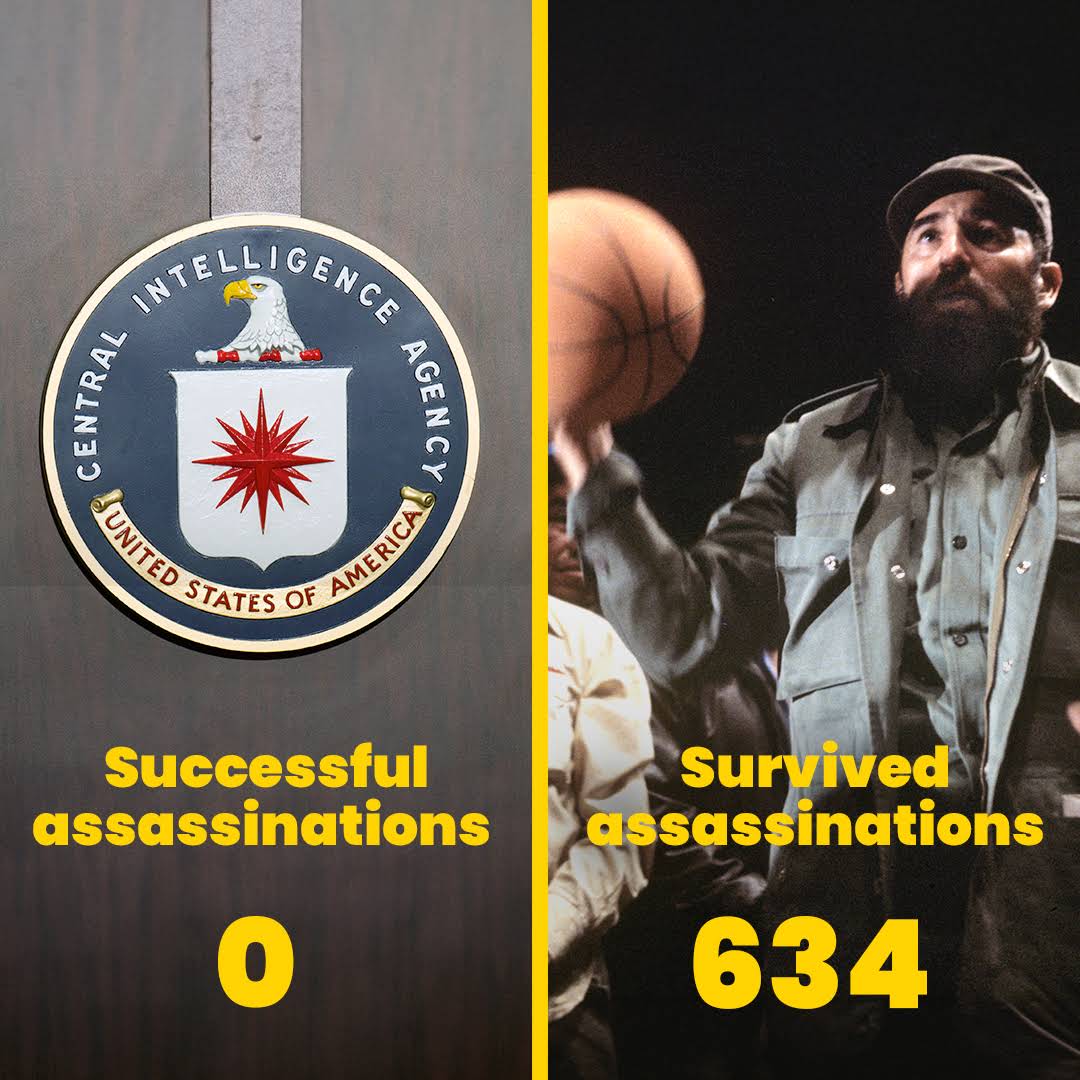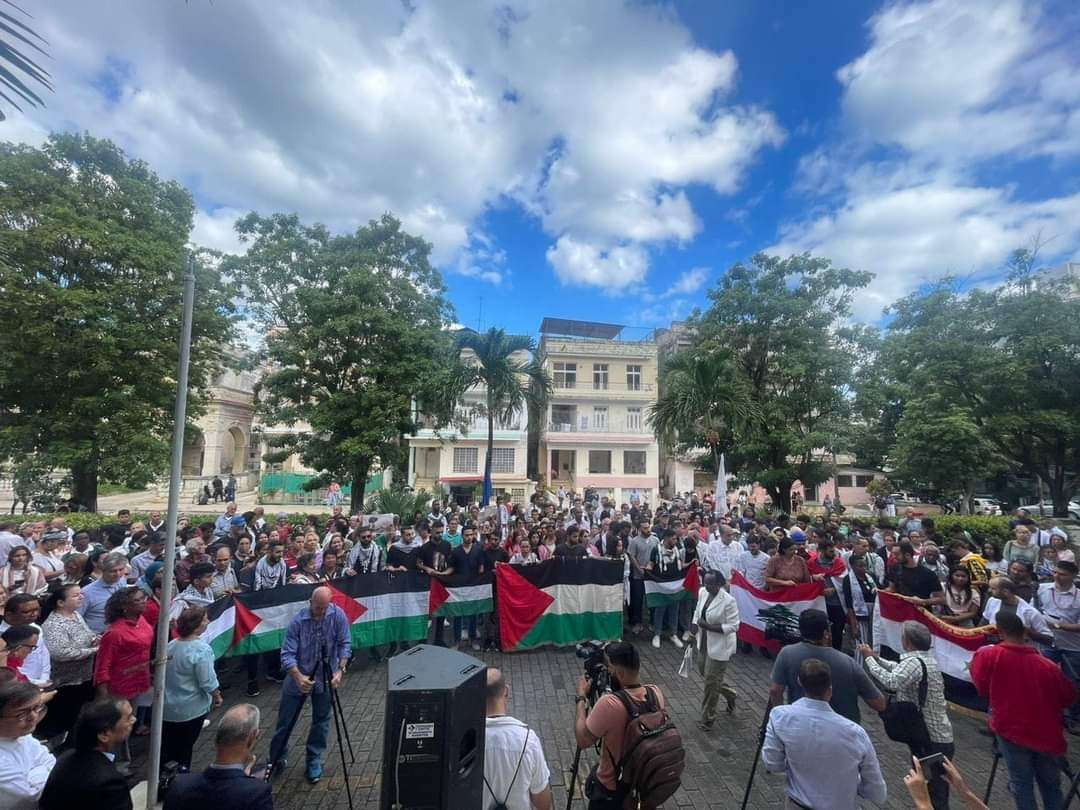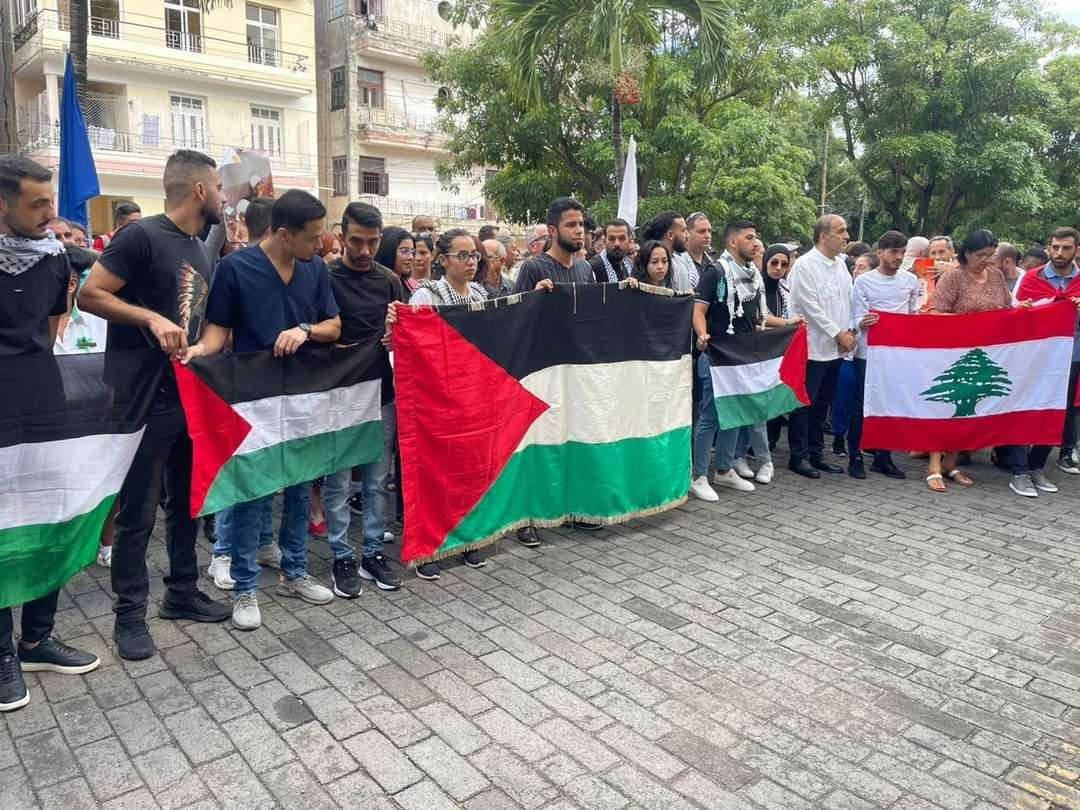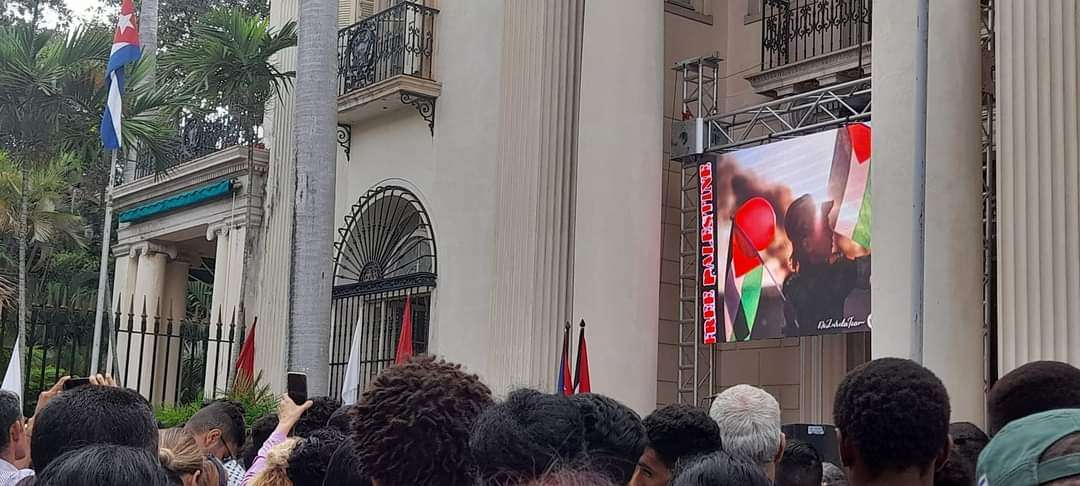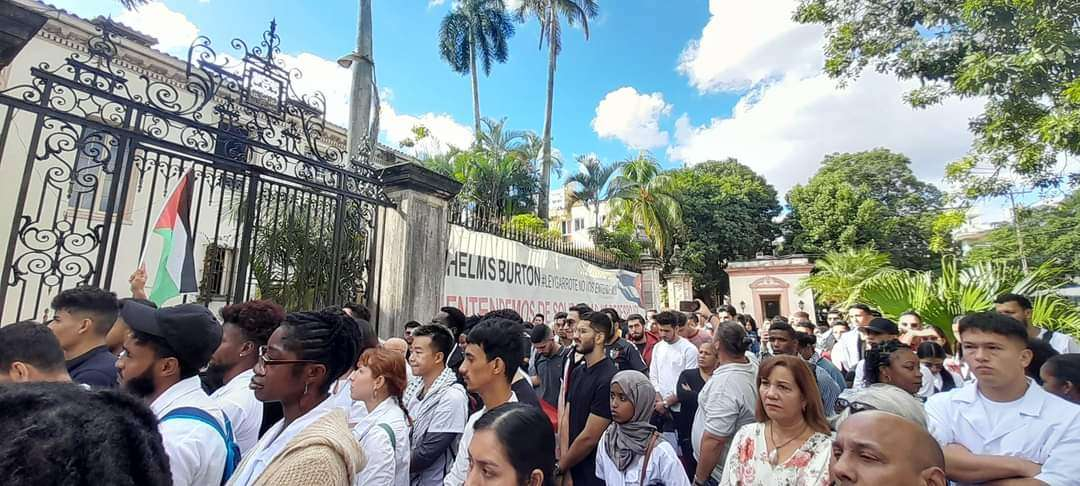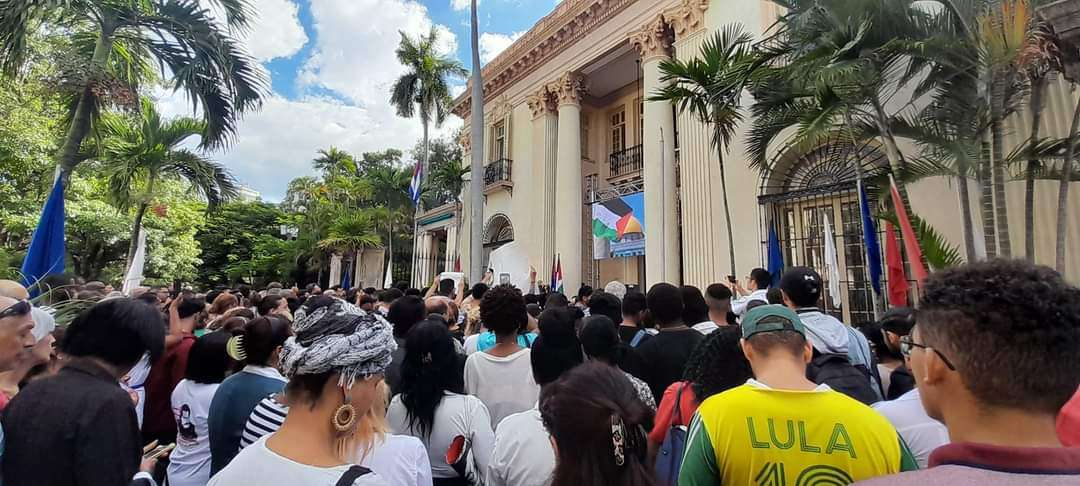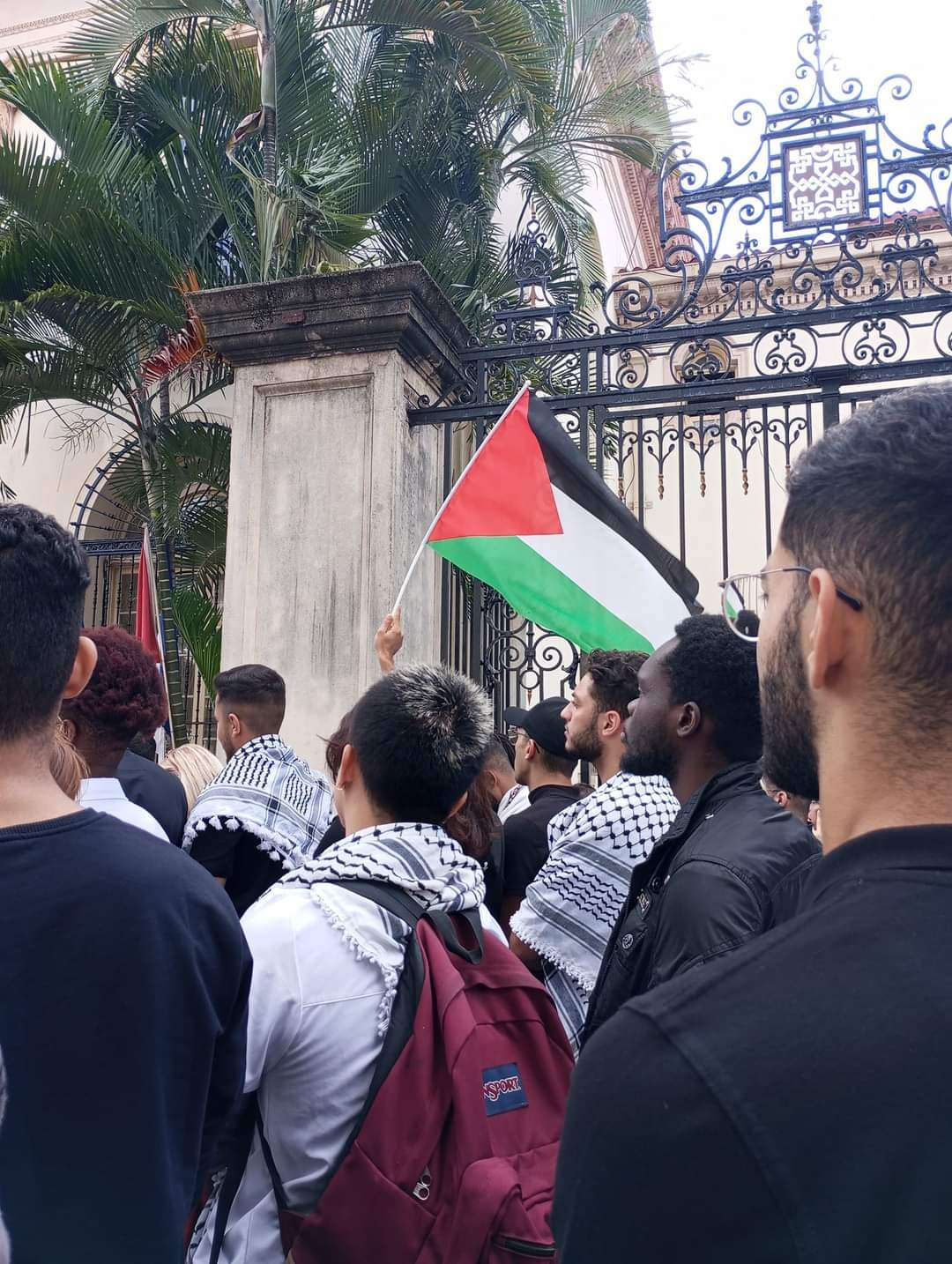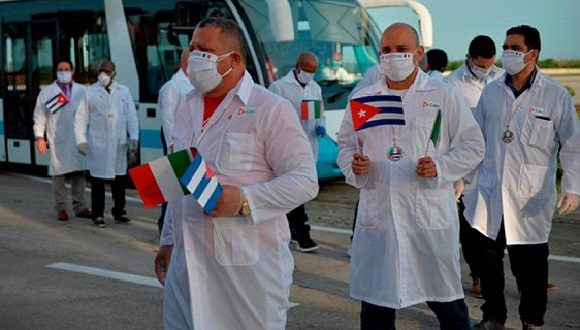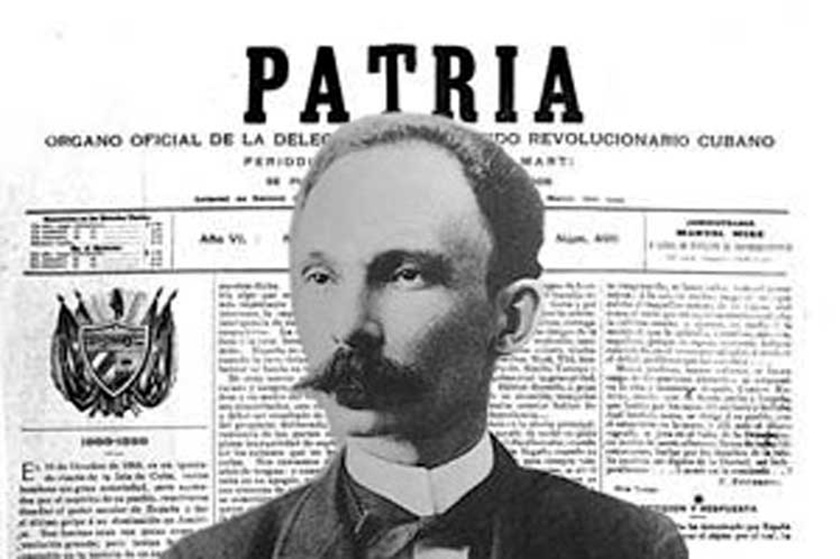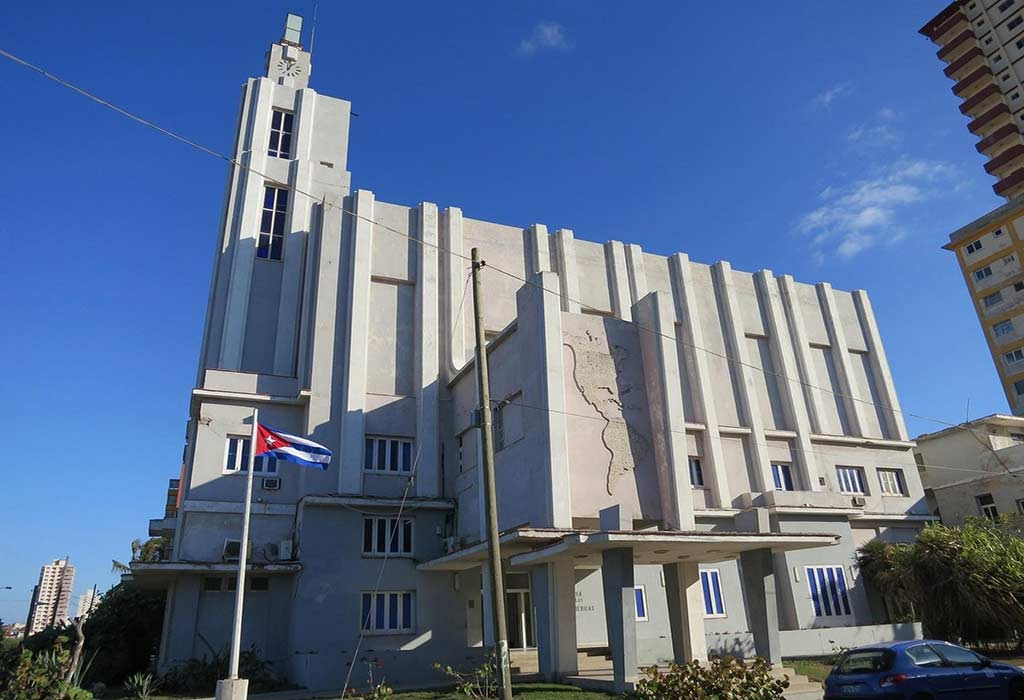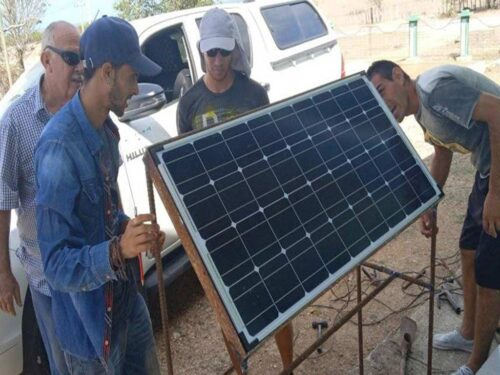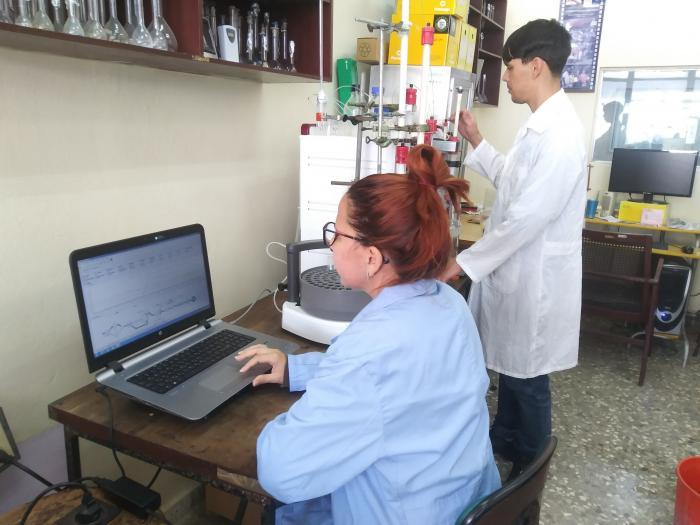
There have been many health problems for which Cuban science and the human and intellectual potential of the scientists, has found an effective and sovereign response in order to protect and improve the quality of life of the population.
This humanist premise is confirmed time and time again. The latest instance is the recent announcement of the project to create a vaccine against the human papillomavirus (HPV), led by the National Center for Scientific Research (CNIC in Spanish), together with other entities of the BioCubaFarma business group.
"Beyond the importance it could have for the institution, it is an opportunity to contribute to the solution of a health problem, such as the transmission of HPV, which is the cause of the appearance of tumors in women," said Julio Alfonso Rubí, PhD in Sciences and CNIC general director.
According to information from the center, cervical cancer -caused by persistent infection with a group of high-risk oncogenic HPVs- is one of the main causes of death in women.
There are more than 240 different types of HPV, of which 15 are related to cervical cancer, and other less common types such as vaginal, vulvar, anal, penile and oropharyngeal cancer.
Among the most dangerous are genotypes 16 and 18, which are linked by 70% to preneoplastic and invasive cervical cancer lesions globally.
In Cuba, cervical cancer is the fifth cause of death in women, and the second in the group between 15 and 44 years of age. Studies for the identification of HPV in different population groups, carried out by researchers of the Pedro Kourí Tropical Medicine Institute and other Cuban medical entities such as the Hermanos Ameijeiras Clinical and Surgical Hospital, showed a high frequency of infection by HPV genotypes of high oncogenic risk in Cuban women, even when they present a normal cytology test.
Precisely, genotypes 16 and 18 have been found among the most frequent in cervical cancer samples in Cuban women.
In view of the incidence and risk of this disease, the World Health Organization proposed a global strategy to eliminate it as a Public Health problem for the decade 2021-2030, which includes vaccinating 90% of girls under 15 years of age against HPV before 2030.
There are at least five HPV vaccines in the world that are prequalified; however, the prices of these vaccines, which patent is generally owned by large companies, are not accessible today to the economic possibilities of our country, Dr. Alfonso Rubí pointed out.
AT WHAT STAGE IS THE HPV VACCINE PROJECT?
Karen Marrero Domínguez, CNIC researcher in charge of the project, explained that the project aims at obtaining a bivalent vaccine candidate against HPV infection in genotypes 16 and 18.
The vaccine candidate under development is designed as a subunit vaccine, and uses as antigen the major envelope protein of HPV 16 and 18, called l1, she added.
"This protein, when produced in recombinant systems, has the property of self-assembling into particles, which morphologically and immunogenically resemble the envelopes of the virus itself. That is why they are called virus-like particles," she explained.
The researcher pointed out that all the vaccines developed to date use these nanostructures as the active ingredient, and have shown that they are capable of inducing an immune response that protects against infection by these viruses the person has been immunized.
Likewise, the immunogens approved to date include protection against genotypes 16 and 18, which together are responsible for 70% of the development of cervical cancer, which is why the Cuban project also employs them, she said.
Marrero Domínguez explained that the project has been divided into three stages. The first one constitutes the development and obtaining of the production systems; in our case, the Escherichia Coli bacteria is used as host, and the establishment of the protein purification conditions, and later the assembly of these virus-like particles from the purified proteins.
"The antigens are already structurally corrected at the laboratory. What’s next? The immunogenic evaluation, that is, the capacity of these structures to induce these responses in animal models," added the specialist.
The second stage of the project is to adapt the process of obtaining these particles, which have been developed in the laboratory, to a larger scale, , she pointed out. For this, we will work with the National Biopreparations Center in order to obtain larger quantities of these antigens, which will allow the development of the vaccine candidate in a formulation ready for testing.
“Our purpose is quite ambitious. We aim to have a vaccine candidate ready for testing in animals to evaluate the toxicology and immune response," said Marrero Domínguez.
In this sense, Dr. Alfonso Rubí explained that the results obtained thus far have made it possible to officially reporting on the development of a project with a high probability of success.
Regarding the importance of a future vaccine, the CNIC Director General stated that it is an opportunity to protect our female population from a fundamental health problem such as cervical cancer and other lesions associated with HPV infection.
He also stressed that the goal, although ambitious, is to vaccinate the female population between nine and 15 years of age by the year 2030.
IT IS ALSO A MATTER OF SOVEREIGNTY
"The HPV vaccine project transcends addressing a health problem; Cuba being the producer of the vaccine and having it available in our country is also a matter of security and sovereignty," said Dr. Alfonso Rubí.
The director pointed out that, in difficult circumstances such as the ones we are living, Cuba cannot count on any supplier nor on the possibilities of paying for any vaccine, so the country had to produce its own.
Precisely, the CNIC was the first multidisciplinary institution dedicated to biomedical and scientific research. Created by the Revolution on July 1, 1965; the CNIC is also the precursor of the development of the current Cuban biopharmaceutical industry.
Its Director General pointed out that the CNIC develops a wide research activity based, fundamentally, on obtaining products of natural origin, in addition to the improvement of equipment for rapid microbiological diagnosis and projects associated with the diagnosis of environmental corrosion and the elaboration of ozonized products.
The HPV vaccine project corresponds to the line of research and development of biological products, in which the processes for obtaining antigens for the development of vaccine candidates against infectious diseases are established.
As an alternative and response to the health urgency, the executive highlighted, research began since mid-2019for the development of a Cuban vaccine against HPV, which is advancing, with encouraging results, to become a vaccine candidate.
